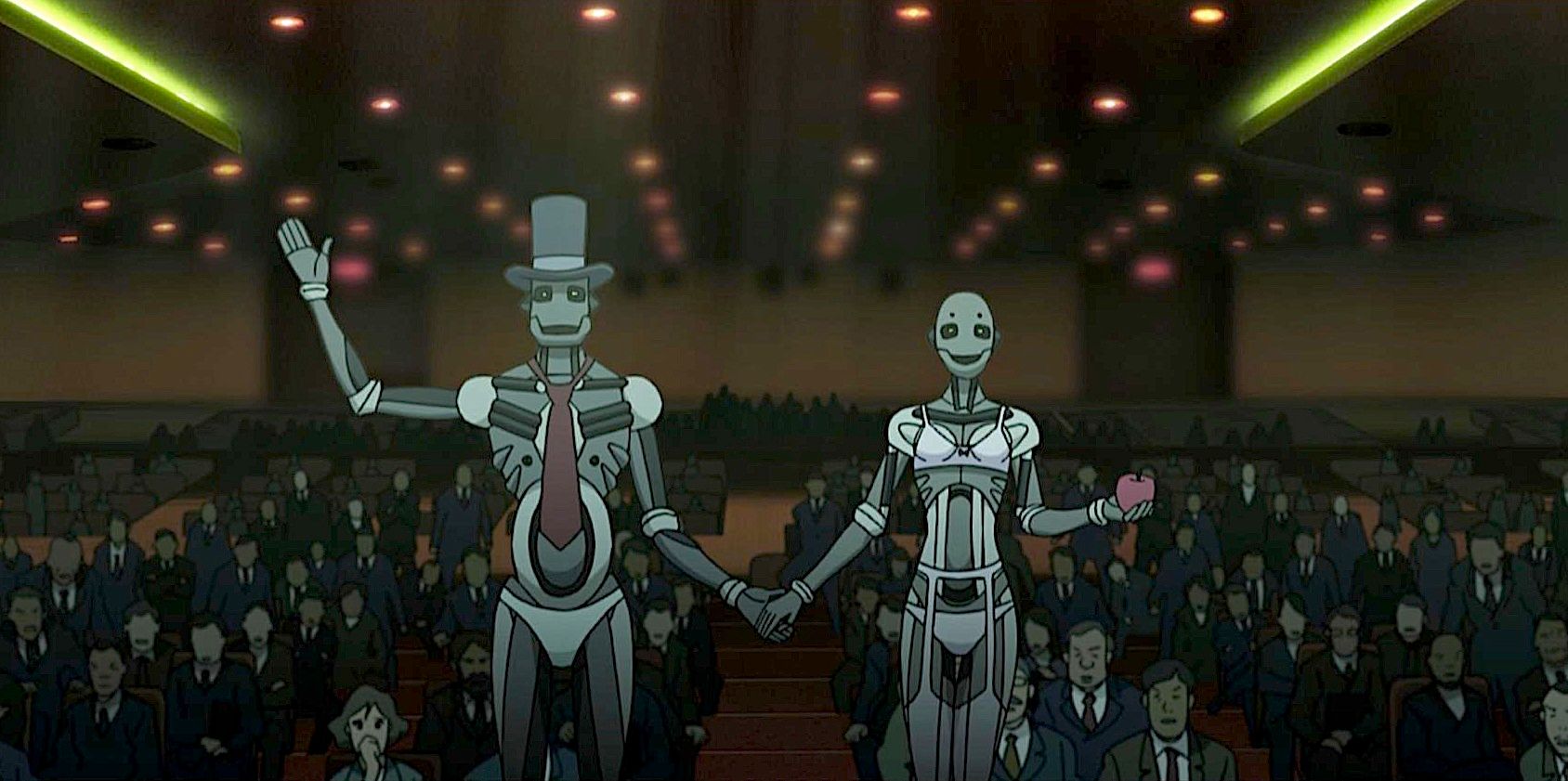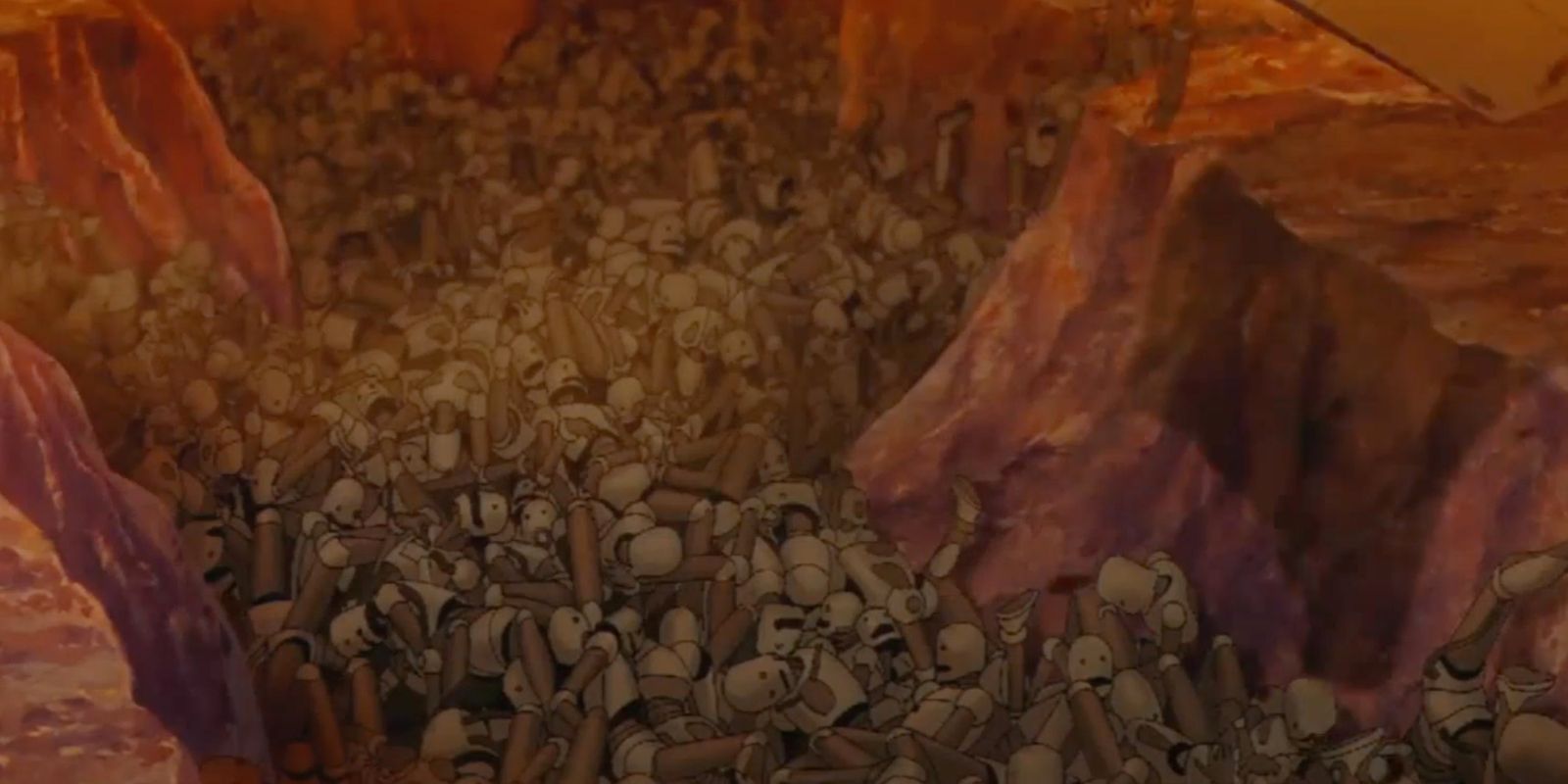
WARNING: The following the following article on The Matrix contains discussion of murder and genocide.
The story of The Matrix is fairly clear-cut and doesn't suffer from any ambiguity within the main trilogy of the series. Neo (Keanu Reeves) discovers that his world is a simulation and breaks free in order to spearhead a human rebellion against tyrannic machine overlords. The series ends with peace between the two sides, but there's never any question of whether or not Neo is the hero in his attempts to free humanity. His actions are seen as obviously just, and there's never any question in the audience's mind of how things got to this point. Morpheus explains early on that there was a great war between humans and machines, but doesn't elaborate as to the details of that history.
This is a good thing, mostly because The Matrix movies are action films. Tons of exposition would bog down the plot and would be of dubious use in telling the overall story of the series. Luckily, there's a space outside of the main trilogy for Matrix stories to be told. 2003 saw the release of The Animatrix, an anthology series of short stories set in the same universe as the films. The shorts were animated and relied on huge names in Japanese animation, including Shinichirō Watanabe and Mahiro Maeda. Maeda would end up directing The Second Renaissance, a two-part short that gives the backstory of the machine uprising.

It's in the telling of The Second Renaissance that it becomes clear just how brutal that backstory really is. The first machine rights case involved the killing of two humans by an android who was trying to avoid being decommissioned -- something that would be considered self-defense in a case involving only humans. Instead, the human governments of the world decide to decommission and destroy every android they can find. This prompts massive outrage from robots and robot sympathizers, filling the screen with scenes of police suppressing peaceful protestors.
Retreating from human society, artificial intelligence forms the peaceful nation of Zero-One, engaging in global trade while attempting to join the United Nations. The other countries of the world respond by attacking their new neighbor, bombing it from above and sending ground troops to wipe it out. Artificial intelligence takes the upper hand in the new war, despite being massively outnumbered. Initiating operation "Dark Sky," the human militaries blot out the very sun, attempting the choke out the power source the machines rely upon. It's this action that initiates the rapid descent of human civilization, plunging them into a literal Dark Age. Machines take over and construct literal pyramids from still-living human forms as they harness their energy for fuel.

The Second Renaissance tells its story in excruciating detail, depicting scenes of horror as both human and machine are torn apart, ripped limb from limb. This visual horror sets a tone even darker than that of the films, vivid and gritty where the original trilogy was slick and stylish. It paints humans in a wholly unfavorable light, showing them as a hubristic species that created their own downfall in a rage-filled attempt to destroy their own creation. It's the start of an arc that is only finished in The Matrix Revolutions when Neo sacrifices himself to save both human and machine, creating peace for the first time in centuries.
The Matrix 4 is currently set to release in December of this year, and it will be interesting to see if it attempts to bridge the gap between the two, even as it releases almost twenty years after the release of either. It could embrace the gory nihilism of The Second Renaissance, or choose to lean even further into the dystopian idealism of the original trilogy, which sees humans attempting to build something new, even in the ruins of their own making.
0 Comments